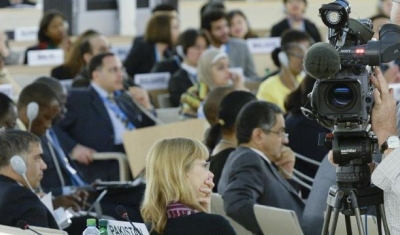A New Portal for the Academic Platform on Treaty Body Review 2020


Geneva Academy
22 June 2017
The Academic Platform on Treaty Body Review 2020 has an entirely new portal on our website, allowing visitors to easily access key information about this project, its documents, timeframe, regional consultations, annual conferences and the team.
This forms part of a new section where we will be highlighting our various platforms, which address topical issues and challenges in the human rights and international humanitarian law fields. These platforms are informed by our research and advance understanding and stimulate debate in the academic community, in policy-making institutions and in government.
About the Academic Platform on Treaty Body Review 2020
The United Nations (UN) human rights (HR) treaty bodies are a central pillar of the international HR protection system. They prevent HR violations by warning states about areas of concern, by advising them on durable solutions that address root causes and by adjudicating individual complaints.
Since the establishment of the first UN treaty body in 1970, both treaty ratifications and the treaty body system have expanded significantly. While this has enhanced HR protection worldwide, it has also created complex challenges that affect the system and those who interact with it: states, national HR institutions, UN entities, civil society organizations, individual complainants and rights-holders at large.
On 9 April 2014, the UN General Assembly (GA) adopted a landmark resolution (A/RES/68/268) on strenghtening the treaty body system, which envisages a review of the measures taken at GA level in 2020. This review represents an opportunity to further reflect on the treaty body system’s future and develop innovative proposals and solutions without weakening the HR protection that the system currently affords.
The Geneva Academy is coordinating the academic input to this 2020 review via the creation of an academic network of independent researchers, a call for papers, a series of regional consultations, annual conferences in Geneva, as well as ongoing interactions with key stakeholders (i.e. states, UN treaty bodies, national HR institutions, civil society, UN entities and the Office of the UN High Commissioner for Human Rights).









